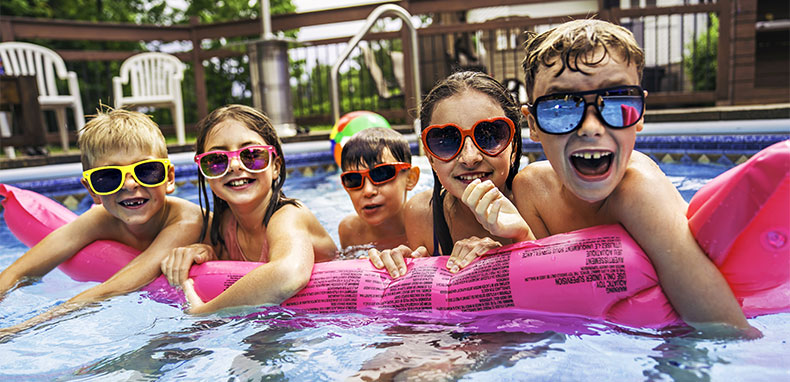The dog days of summer are here, and most of us want to chill near the pool, on the lake or at the beach to beat the scorching North Carolina heat.
These activities are the perfect way to cool down and spend time with friends and family. But a day of fun can quickly take a turn if the proper precautions are not taken to avoid the hazards posed when water and electricity mix. Keep these tips in mind to make sure your summer stays safe and fun.
At the Pool
- Ground fault circuit interrupters (GFCIs) are one form of protection from electrical hazards. GFCIs detect dangerous situations where a shock may occur and cut off power to prevent shock. Any situation where electricity is used near water is a shock hazard. You should have GFCI protection on underwater lighting circuits, lighting around pools, hot tubs, and spas.
- Build pools and decks at least 5 feet away from all underground electric lines and at least 25 feet away from overhead electric lines.
- Do not put electric appliances within 10 feet of a swimming pool. When practical, use battery-operated appliances near swimming pools.
- Any electric outlets within 20 feet of a pool should have GFCIs.
- If a swimmer in the water feels electricity or appears to be shocked, don’t dive in or you could be shocked as well. Turn off the power and then use a fiberglass shepherd’s hook to pull the victim out of the water.
- Never swim during a thunderstorm.
In Lakes and Rivers
- Electricity and water are dangerous around larger bodies of water. If you plan to go boating or fishing this summer, be aware of your surroundings and potential electrical hazards. Never go swimming near boats plugged into shore power or docks with electrical service.
- Check for the location of power lines before fishing. Make sure you cast the line far away from power lines to avoid contact.
- Contact between your boat and a power line could be devastating. Maintain a distance of at least 10 feet between your boat and nearby power lines to be safe.
- If your boat comes in contact with a power line, never jump out of the boat into the water — the water could be energized. Instead, stay in the boat and avoid touching anything metal until help arrives or until your boat is no longer in contact with the line.
- Your boat’s wiring should comply with American Boat and Yacht Council Standards. Have work done by a professional familiar with marine electrical codes and standards.
- Dock electrical systems should be installed, and inspected annually by professionals familiar with marine codes and should include ground fault (GFCI) protection.
Your safety is important to us
We make safety a priority at Randolph Electric Membership Corporation. Here's an electrical safety checklist to help keep your family safe.


